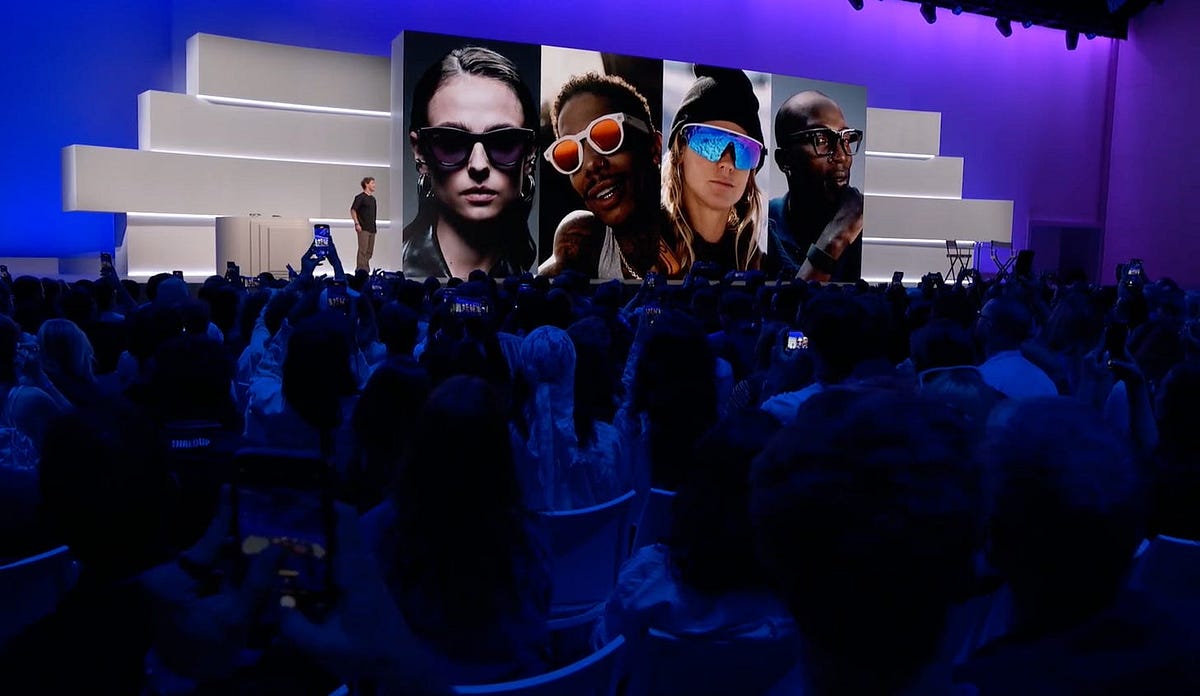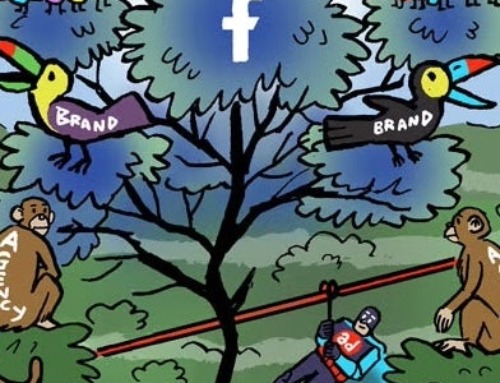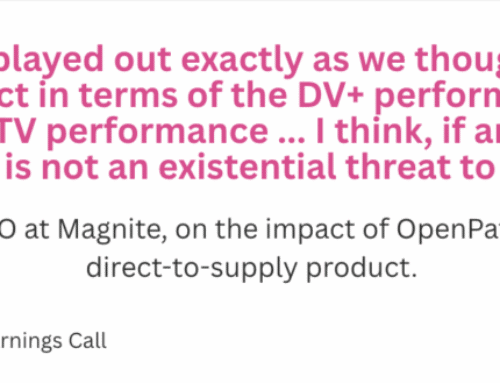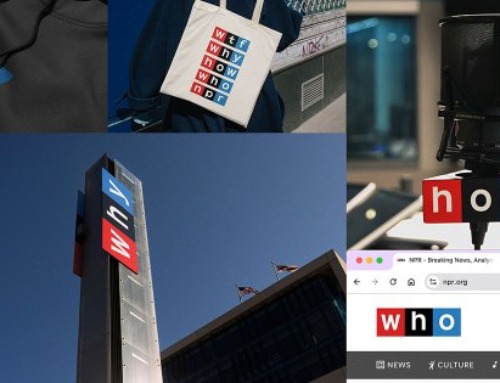Lab Weekly — 09/19/2025 New Meta AI glasses, Plus, the latest news about Gemini in Chrome, agentic commerce, and more must-know news and stats
Want this newsletter in your inbox every week? Sign up for our mailing list here

The new Meta Display glasses look impressive, but can Meta’s AI keep up with its ambition?

Apple pitches creator-friendly camera features, new wearable health features, and live translation
On the Cultural Fatigue around AI
After years of breathless hype, the broader public is growing skeptical of the lofty promises of AI and increasingly critical of tech companies pushing AI without delivering tangible quality-of-life improvements. For brands, AI fatigue is starting to erode consumer trust.
Streaming Enters Its “Profitability Era” — What Comes Next?
Hollywood is finally figuring out how to make the streaming model work, and the numbers speak for themselves. Looking ahead, new bundling strategies and consolidations signal a new playbook for entertainment brands.

Google is rolling out Gemini in Chrome to all U.S. desktop users with a sidebar button that can clarify pages, summarize and compare across multiple tabs, retrieve pages you previously visited, and soon trigger “agentic” flows like booking a haircut or ordering groceries.
Strategically, integrating Gemini into many people’s default web browser gives Google a distribution edge that most AI-first browsers simply don’t have. If the agentic features Google is touting are reliable and accurate, this move should accelerate Gemini adoption by shifting it from a destination app to ambient infrastructure, capturing intent at the moment of browsing.
One near-term caveat here is that, the advanced agent features are still “coming soon,” and Google faces competition from agentic assistants like OpenAI’s Operator, so its momentum will hinge on execution quality, guardrails, and whether users can trust always-on assistance in their browser. Most Americans are more concerned than excited about the increased use of AI, but are nonetheless open to letting AI assist with day-to-day tasks, a new survey by Pew Research Center found.
For brands and publishers, this integration could lead to more zero-click answers and click-free workflows for Chrome users, which will reward structured content, product feeds, and clean schema markup that Gemini can ingest, in addition to ad and affiliate models that follow users from other Google platforms, such as Google Maps or YouTube, into the browser-native AI interface.
Related: Google is updating its Discover page in its Search app to let users follow specific publishers and creators [TechCrunch]; Google’s Gemini app is the #1 app in the US App Store this week, driven by its viral “Nano Banana” image model [9to5Google]
Google Launches New Protocol For Agent-Driven Purchases [TechCrunch]
Google unveiled the open Agent Payments Protocol (AP2), a common standard for how AI agents authenticate, authorize, and account for purchases on users’ behalf. Backed by over 60 partners, including American Express, Mastercard, PayPal, Revolut, Intuit, and more, AP2 aims to prevent a fragmented bot-commerce ecosystem and build on existing agent standards (A2A, MCP) to make agent-led checkout verifiable and interoperable. This is crucial plumbing if agentic commerce, where AI agents do the shopping on user’s behalf, were to ever take off.
For brand marketers and agencies, Google’s AP2 makes it possible for AI shopping bots to secure payments. Agentic commerce is potentially opening a new channel for brands to track and influence those purchases. By standardizing how AI agents authenticate, authorize, and log purchases, AP2 could turn consent into a targetable signal and makes closed-loop attribution feasible across retailers and wallets.
Related: Google and PayPal team up on agentic commerce [TechCrunch]; AI commerce portends potential fraud [Payments Dive]
YouTube Announces New Generative AI Tools for Creators [TechCrunch] & [TechCrunch]
At the “Made on YouTube” event earlier this week, the company announced a slew of AI-driven creative tools for its creator community, including a custom version of text-to-video model Veo 3 and a new remixing tool, as well as new ways creators can earn more through brand deals and the YouTube Shopping program, the latter of which will now allow creators to swap out brand sponsorships in long-form videos. In addition, podcast creators will get AI tools that help turn video podcasts into clips and YouTube Shorts, as well as a new feature that helps create videos for audio-only podcasters.
YouTube has been steadily rolling out AI creative tools for a while now, hoping to empower creators to produce more short clips from their long-form videos and podcasts. Theoretically, this should be helpful for reviving back catalogs, creating more discovery opportunities, and routing short-form viewers into full episodes and subscriptions. Yet, most creators are staying away from it, cautiously hedging against the potential backlash against AI use. In that vacuum, we now have AI slop farms that are hiring “clippers” to flood TikTok and Instagram with short, promotional videos. YouTube’s current stance is to curb its spread mainly by demonetization and detection rather than outright bans, but at the rate that AI creative tools are proliferating, it will need to strike a balance that’s getting increasingly tricky.
Related: YouTube Live is getting several new features, including the ability to broadcast simultaneously in horizontal and vertical formats and minigames for creators while livestreaming [TechCrunch]; Digital content creators are eligible for the new “no tax on tips” rule, the Treasury Department said [THR]
Situational Awareness: Lyft partners with Waymo to launch robotaxis in Nashville [Bloomberg]
Lyft partners with Waymo to launch robotaxis in Nashville starting in 2026, marking the first collaboration between the two companies. Waymo has been testing its robotaxis in Nashville since March. But with Lyft on board, Waymo will get to tap Lyft’s customer base and dispatch rides, which will reportedly start via the Waymo app and later be available in the Lyft app. This differs from Waymo’s partnership with Uber in Atlanta and Austin, where all robotaxi rides are dispatched via Uber.
“Demon Slayer Infinity Castle” makes history with record $70 million U.S. opening [THR]
New anime entry “Demon Slayer: Infinity Castle” smashed the box office expectations with a $70 million North America debut, quite a milestone for anime films and remarkable for any slow weekend. Made on a lean $20 million budget, it proves eventized global IP can open like a tentpole without four-quadrant appeal or marketing spend. Expect to see more studios double down on genres with built-in fandoms, whether it’s anime, video games, music documentaries or concert films. Taylor Swift already has a new “release party” event coming to movie theaters soon.
Bumble BFF’s revamped app is here, focusing on friend groups and community building [TechCrunch]
As the reporter pointed out, this revamp comes at a time when there’s been a surge in apps designed for finding genuine friendships, such as Clockout, Clyx, Les Amís, Timeleft, and 222, among others. Bumble BFF’s pivot reflects a broader “resorted social” shift we outlined in the Outlook report: from endless feeds to curated rooms with clear hosts, schedules, and tools that make real-world meetups the point, not the by-product. For brands looking to reach their audiences offline, the best play is to organize or sponsor community-driven recurring series such as run clubs or book clubs. Already, many lifestyle-oriented brands are embracing book culture to build real-life ties to consumers.
Snap announces Snap OS 2.0 for its Spectacles glasses [UploadVR]
Snap released Snap OS 2.0 for its developer-only Spectacles, adding core first-party apps (Browser with WebXR, Gallery, Spotlight), multitasking, and quality-of-life features as it readies a consumer “Specs” launch in 2026. Now that Meta is charging ahead in the AI glasses category, Snap has seemingly lost its lead. But, Snap can still win in specific use cases, such as branded AR experiences, if it manages to ship a lighter, longer-lasting device in time and leans into its AR software flywheel.
- More than half of consumers distrust or are not confident in the reliability and impartiality of artificial intelligence search and summary results, and an even greater percentage wish they could turn them off, according to research from Gartner. According to the survey of 377 consumers (small sample size, so take it with a grain of salt), 53% said they do not have confidence in the results of AI-informed searches, and 41% said they felt the generative AI overviews provided by traditional search engines are more frustrating than traditional search methods.
- Each generation tends to splurge on different things, a new study by Qualtrics has found. For Gen Z, dining out takes the top spot, with 37% of Gen Z saying they’ll spend more in this category in 2025, while travel takes the first spot for Boomers, with 41% preferring to spend more on it. For Millennials, dining out and apparel are tied (both at 33%) for first, with groceries following closely behind at 32%, suggesting that this group sees food as a necessity and an area where they can spare a little extra cash.
- OpenAI has released the first detailed public study on how people use ChatGPT, WSJ reports, which found 73% of chats were non-work related, practical guidance was the top use case, and more. Meanwhile, a new Anthropic report details how Claude usage varies by country and US state, finding 36% use it for coding, 77% of business uses involve automation, and more.
If you find our insights valuable and would like to have a deeper conversation on technology and media innovations, or need to sound smarter in a client meeting or a pitch, please feel free to reach out to Ryan Miller, our Director of Partnerships, at ryan.miller@ipglab.com.
If you liked this edition of Lab Weekly by IPG Media Lab, why not share it?
Lab Weekly — 09/19/2025 was originally published in IPG Media Lab on Medium, where people are continuing the conversation by highlighting and responding to this story.








